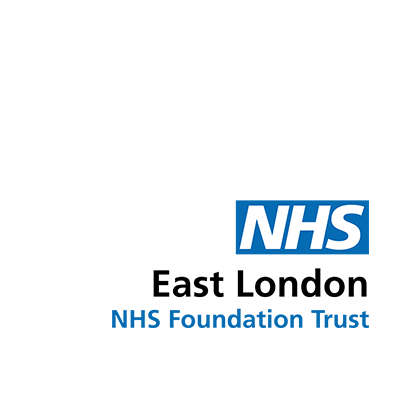
Enabling a culture of co-production and embedding patient voice in quality improvement approaches
East London NHS Foundation Trust (ELFT) is a mental health, learning disability and community trust covering a population of 955,000 in East London and 890,000 in Bedfordshire and Luton. The trust serves a growing population with high levels of deprivation and ethnic diversity. As the trust covers urban and rural areas, there are distinct and varying challenges related to accessing services across the patch. There are also high levels of population growth within the area, meaning more people are requiring use of healthcare services over time.
ELFT are committed to taking action on health inequalities as an organisation. In 2023, they published their first annual population health report setting out the organisation's strategic intent to improve population health outcomes, including a commitment to making their communities a "fairer place to live and work" (East London NHS Foundation Trust, 2023). The strategy prioritises actions on children and young people's development, employment, income maximisation, climate change, social justice, and promoting physical health. The recommendations outlined within the population health report were developed in partnership with service users, carers and communities.
Since 2008, the trust has employed a people participation team, dedicated to involving service users in the work of the organisation to improve services. The team has expanded over time and now encompasses a directorate, with a director of people participation overseeing the wider team of 206 individuals. The scale of the growth demonstrates the internal demand for the team's work and the value of working alongside patients to improve patient care.
Centrally, service users are seen as equal partners alongside the team. There are benefits for the individuals involved, with improvements to their wellbeing and recovery, alongside opportunities for peer support and development of social skills. All service users are entitled to payment and expenses.
The team are embedded within the trust's organisational governance structure. Each borough or service has a local working together group that brings together local service users and populations to discuss pertinent issues. These individual groups feed into the trust-wide working together group, which meets every three months to update on local progress and to discuss any common topics. This group reports into the board's people participation committee, which is currently chaired by a non-executive director and has a majority service user membership. The committee holds the board to account for its delivery of the People Participation Strategy. ELFT also host an annual people participation conference, bringing together service users, carers, healthcare professionals and partner organisations to connect and celebrate the work (East London NHS Foundation Trust, 2024). This model has successfully enabled a culture of co-production across the trust, including among front line staff ways of working and up to director and board level recognition.
The people participation team have a broad remit, ranging from providing support for other service users, participating in training activities, sitting on interview panels and providing recommendations for service improvements. Involving patient voice is also embedded within ELFT's approach to QI, which prioritises pursuing equity. The QI projects bring together staff and service users to improve and redesign care. To enable service users to meaningfully engage with QI work, ELFT have developed a specific introductory training module for service users and carers. There are currently 131 active QI projects within ELFT, offering a range of possible areas where service users can share their experiences and views.
One example of this work was demonstrated in central Bedfordshire's QI project on medication flow and communication. The primary aims of the project were to reduce issues related to medication changes, side effects and communication errors between primary and secondary care, and to improve communication on medications to reduce patient concerns. Research has found that there are more than 237 million medication errors made annually in England (Elliott et al, 2021) and that 30-50% of medicines prescribed are not taken as intended (NICE, 2016). The QI project involved four core service users and carers, three clinicians and others. A key recommendation related to improving communication between healthcare partners, including primary care, mental health teams and acute teams. Innovative ideas have included 'drop-in' pharmacy clinics, medication reminders, medication passports and collaborative prescribing approaches between staff and service users. The project has led to improved service user satisfaction with medications.
Advice from ELFT's people participation team is for trusts to start small with co-production and to see where the results take the organisation: "Start somewhere, go everywhere".
For more information on ELFT's work, please contact their people participation team: elft.peopleparticipation@nhs.net.